Laser tag in most populous cities: a million-dollar business or an extravagant hobby?
Despite the fact that laser tag has been steadily gaining popularity in Russia, it is still considered a relatively new type of business. There have so far been few articles in Russian on how to open a laser tag club, how to attract clients and what needs to be done for it to flourish. Fortunately for us, the already existing clubs willingly shared their experience.
We recently wrote an article about how our laser tag colleagues from medium-sized cities (up to 400 thousand population) are doing. Today, we have spoken to people from clubs that are located in most popular Russian cities. The following clubs talked to us about their success and plans for the future: ‘Zaryad’ (Rostov-on-Don), ‘Katyusha’ (Volgograd) and ‘Avanpost’ (Krasnoyarsk).
Anyway, why laser tag?
Can you guess the most popular answer to the question: ‘What made you go for laser tag?’ In 99% of cases, club founders answered the same way: ‘I once happened to go to a game of laser tag and I realized that was just what I had been looking for.’ The representatives of the ‘Zaryad’, the ‘Katyusha’ and the ‘Avanpost’ clubs state that was the case: all of them got into laser tag from the very first game. After some time, the favourite hobby evolved into business.
As to the first steps, they were different for all the clubs. Some embarked on the new project right away, while others took their time to think things over. Yet there was something in common: at best, people from Rostov-on-Don, Volgograd and Krasnoyarsk only had a faint idea about what laser tag was. Therefore, all the clubs had to (and they still have to) do a thorough research of the topic.
Anna Sinitsyna, ‘Katyusha’ club (Volgograd):
‘When we just started, few knew about laser tag in our city. Our club was among the first in Volgograd! That was good and bad at the same time. On the one hand, there was no tough competition. On the other hand, we had to break through people’s lack of trust for laser tag. We didn’t have a chance to borrow any useful ideas from others, either.’
Denis Kurtasov, ‘Avanpost’ club (Krasnoyarsk):
‘It took me a year to prepare before I opened the club: I studied others' experiences, drafted a business plan, visited training courses. I did it step by step. For example, I created a group in the Vkontakte social network and a website in advance, so that they had gotten indexed by search engines by the time the club was opened. Then I started writing on local public walls of recreation areas, fill out my group page, invite subscribers. When my business officially started off, there were about 1600 subscribers in the ‘Avanpost’ group. These people knew by then what laser tag was and they looked forward to our club opening. During the first month, our income made up 100 000 roubles. That was an excellent start and I am glad that approached the matter so scrupulously. This is the most reasonable approach for those who are low on money (as in my case) for starting a business.’
Marketing is business philosophy
It’s as clear as day that no business will prosper without marketing. Yet it is not always clear what kind of advertising is likely to yield profit and draw clients and what kind will become a waste of money. Is advertising on TV still efficient? Does leafleting still make any sense? Will groups in social networks help attract clients? Let’s find out what the experience of clubs from the three most populous cities is.
Georgy Masiuk, ‘Zaryad’ club (Rostov-on-Don):
‘During the first year, we actively used collective buying websites (these are the websites where any user can buy discount vouchers on any product or service), and we were very successful at that. I really believe that collective buying websites are very useful for beginning businessmen. People love discounts. Vouchers help make your club more recognizable. As to printed ads, banner ads, advertising in public transport – these all are a waste of money. We once tried advertising on public taxi buses, but that didn’t increase our profit. As an example, we spent 18000 on it, but our income made up 15000. Not only did we not cover the cost of advertising, we suffered losses. For the income does not go into club owners’ pockets – it is spent on instructors’ salaries, paying off loans, rent…’
Denis Kurtasov, ‘Avanpost’ club (Krasnoyarsk):
‘At first, I used a group page in the Vkontakte social network as an advertising space. When the product became in demand, the website started paying off. As I mentioned earlier, we started the process of search engine optimization beforehand so it appeared in the top 10. The clients that have ever used our services most frequently find us through online search when they want to use our services again. Sometimes they do not remember or do not know the name of our club, so they enter ‘laser tag’ in the search window – and our website appears among the first results. No SEO specialist is required to get a website in the top 10 in search results – it will be sufficient to read a few articles about this in free sources. When it comes to laser tag, same is true for all cites, even for Moscow. Lots of people misinterpret the role of a website. Its purpose is not to inform users, but to generate the incoming flow (phone calls). So first, the website must attract visitors.
As to banner ads, leafleting, other advertising, these didn’t pay off. I steer clear from collective buying websites, for they are almost useless. They appear in top search results thanks to SEO and contextual advertising: a person searching for laser tag will find a voucher instead. Holding an open free game will be a lot more profitable – there you can meet people, share some information with them, get them involved. I stick to an idea that it is not an advertisement that sells a product but a seller. At present, we are channelling all our power and means into development and promotion: we are buying more equipment and doing online marketing.’
Anna Sinitsyna, ‘Katyusha’ club (Volgograd):
‘Just as many others, we gave collective buying websites a try. They are effective at the beginning stage. Yet vouchers are not profitable for those websites that have been developing well for a while. The thing is, collective buying websites operate by the same principle as do draws in the Vkontakte social network: they help your brand become more recognizable, but they do not attract real clients – just discount hunters, who do not care what they buy, as long as it has a reduced price. I don’t know how things are going in other cities (I suspect the situation is roughly the same everywhere), but in Volgograd, laser tag is still poorly developed. It is for this reason that advertising in newspapers, magazines and on the radio will not make a difference: people simply won’t understand what the subject matter is. The best advertising is word of mouth marketing. A happy client will spread the word about you.’
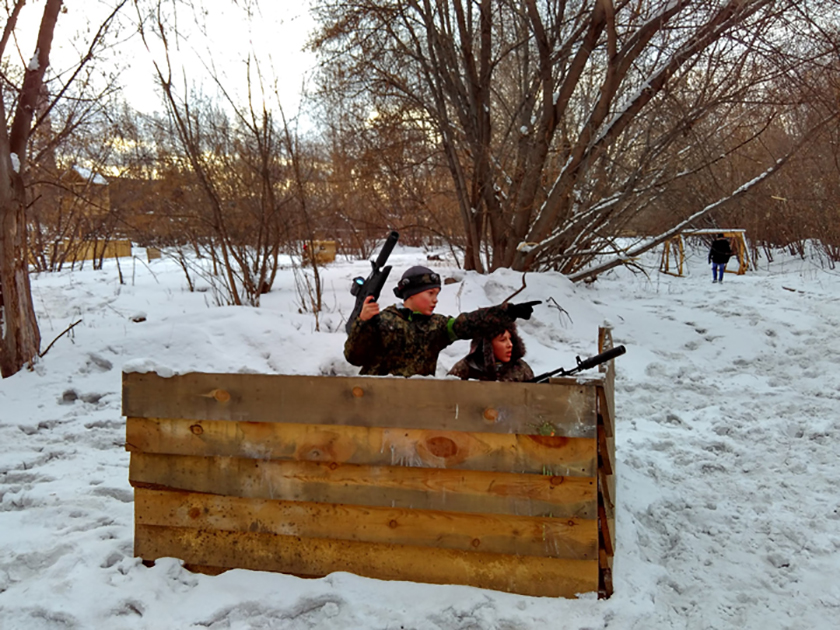
Social network Vkontakte
Indeed, no marketing means are more effective than is bush telegraph. Yet a lot will need to be done to turn your club into hot topic. For you need good fame, and the development of social networks means that any your miss and fall will be increased manifold. Anyway, there is a positive side to that: your achievements will be spoken about, too (naturally, not as willingly). Fortunately, word of mouth can be effectively controlled using those same social networks.
Anna Sinitsyna, ‘Katyusha’ club (Volgograd):
‘If you use social networks for marketing, this will suffice. Most frequently, people search for entertainment through social networks. In Vkontakte, you can rely on reposts, hold contests; it is convenient for viewing videos and photos. A website is good, too, but it is, basically, only needed for people who are not registered in Vkontakte. There are few of them.’
Georgy Masiuk, ‘Zaryad’ club (Rostov-on-Don):
‘Vkontakte is a great means to share information about yourself. Still, social networks take away a lot of time and energy, especially if one needs to do the so called spamming: to add as many friends as possible, send invitations, send personal messages with information about discounts. All free of charge, though.’
Denis Kurtasov, ‘Avanpost’ club (Krasnoyarsk):
‘We had a fresh approach to promotion in that we created a fan group from similar interest groups (entertainment, recreation). Therefore, there were no random people in our public group. This is a painstaking method, yet effective. It can be adopted when there are still few games, but plenty of time.
Vkontakte beats all popularity records. Neither Facebook, nor Odnoklassniki can compete against it when it comes to business information promotion. It is believed that public groups do not bring in clients – they only serve as free marketing spaces, yet it is in this social network that public opinion about a particular brand is shaped.
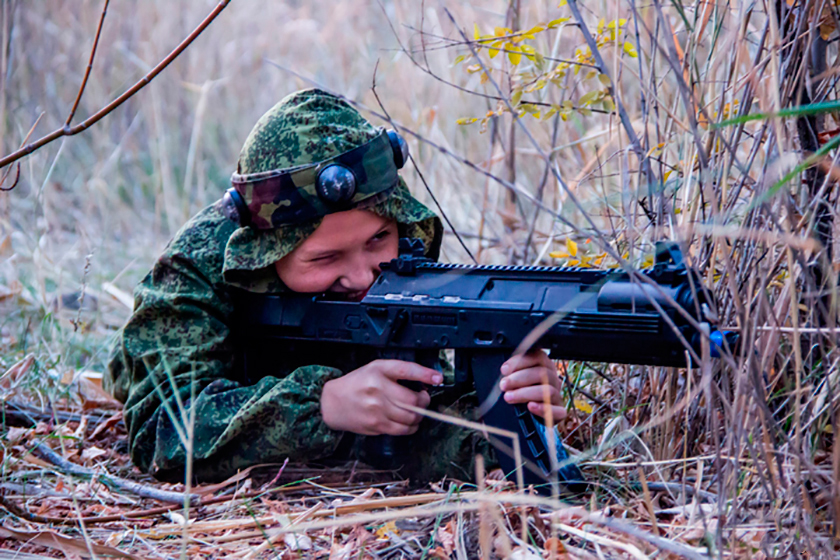
Repost contests
This is the most popular method of attracting subscribers into a group. So far, the Vkontakte social network has been very loyal about such contests. Therefore, one can hold as many of them in own group as one may want. Usually clubs offer one or several free laser tag games as a prize. People enjoy taking part in such contests and they usually know the rules by heart: join the group, share the news with friends and do not delete the post till the end of the contest. It is easy, simple and effective: dozens – or sometimes hundreds – subscribe, group visitors count grows, the name of the club spreads around the network. There are negative sides to it, too. First, a lot of so called free riders join the group. These people don’t mind what to win, winning as such is the point. They take part in all the contests they stumble across, hoping to win in any of them. Certainly, if they do not win the prize, they unsubscribe right away. Therefore, losing subscribers after the contest is a common case. Second, you mill hardly manage to gain the target audience. Out of all the subscribers few will become your clients. Anyway, I’d like to repeat myself: social networks do not bring in clients – they function as a word of mouth and help you become known and recognizable. And finally, as, indeed, contests are the best available method of attracting subscribers, they are held by all but everyone. For this reason, your prize loses in value. People are fully satiated with competitions, for there is an excess of those. One can rip benefits from such contests as yet, so be sure to grab the chance.
Other ways to get recognition and acclaim
Besides the word of mouth and social networks, there are there are other means to advertise own business. For example, websites devoted to the subject, exceptional offers, stand out logotype inscribed over a vehicle and even… adds on posts.
Georgy Masiuk, ‘Zaryad’ club (Rostov-on-Don):
‘Honestly speaking, we have tried out all thinkable means of marketing. Online advertising – that is including other websites – has proven to be most useful. For example, children and their parents (the majority of our clients are kids) can be pulled in from web portals devoted to particular subjects, such as KidsReview. When people cannot make up their mind about where they can take their kid at the weekend, they first ask their friends for advice (word of mouth), then they search online. Our goal is to be mentioned at both instances. As a matter of fact, during the first year, we invested all our income into marketing, equipment and playgrounds. I don’t think it is worth relying on a single factor, the development must go on in all directions. The result surpassed all our expectations. When we opened, there were about 7 clubs in the city by then. We have now bought out nearly all of them.’
Anna Sinitsyna, ‘Katyusha’ club (Volgograd):
‘Old advertising methods are effective, too, as long as one acts wisely. For instance, one of our city clubs literally covered every single post with their ads. Pretty soon, their company became well recognizable. Our logo, which is matryoshka, became popular, too, thanks to its being catchy. On several occasions, I witnessed how children on seeing our car with a picture of matryoshka on it quietly shared remarks of joy with each other: “Wow! Isn’t that the Katyusha, a laser tag club!” Once an incredible thought came to my mind about how to attract clients: I did something that my club colleagues believed to be a terrible thing to do – I coloured a Predator blaster pink. Believe it or not, but since then boys have been literally fighting for this pink blaster! Besides, the pink Predator is a favourite among adults and reserve it more frequently, too.’
Denis Kurtasov, ‘Avanpost’ club (Krasnoyarsk):
‘To be remembered, one needs to be all over the place. We gave 5 interviews on different TV channels. It turned out that the easiest way to get on TV was to befriend TV presenters in social networks.’

Friend’s support
Discounts for couples on St. Valentine’s Day, 23d of February, 8th of March or any other holiday sale, free games for birthday boys/girls, scenarios based on a particular subject – these all, too, attract clients and are truly productive. So, try out different approaches. What you should not do by any means, clubs warn, is use your friends for business promotion.
Anna Sinitsyna, ‘Katyusha’ club (Volgograd):
‘Dear colleagues, I strongly advise that you do not rely on your friends! Because what do the majority think? They think that now that they have bought the equipment, they are going to call their friends to come to the first game; they will get impressed and so spread the word about them. Forget it! It turned out that friends are the last to come to your club, when you start wondering whether you actually have any friends. As surprising as it may sound, they don’t seem to value free offers. But they will eagerly come and pay for a game later, after your venture has finally become successful. Strange people (nonetheless, I still love my friends a lot).’
Georgy Masiuk, ‘Zaryad’ club (Rostov-on-Don):
‘I suggest that beginning businessmen should not hope that their pals will be their first clients. Be sure that they won’t come to you. So, you’d better get busy bringing in new customers.
As to discounts, it is not at all that simple and straightforward here. Some offers that at first seemed to be a real bargain failed. On the contrary, others keep bringing in new clients. As an example, offers for birthday boys/girls are in demand. That is when the subject of the occasion plays for free and all his guests receive a good discount. This is very convenient and cost-efficient for clients, for birthday parties are frequently celebrated in the laser tag club. As to customer loyalty programs, such as ‘Rise to the rank of a General’, they do not work for nearly everyone. Clients simply won’t collect and save stars or stickers that are awarded for each game, even when they are promised a good prize.'

Oscar nominated scenario
Certainly, marketing is an essential business component. We would love to cite Denis Kurtasov from the ‘Avanpost’ club, though, that that it is not an ad, but a seller that sells. Customers value not only the game itself, but also the overall mood created by instructors who more often than not have to combine the jobs of an animator, a presenter and even of a toastmaster. It won’t do just to explain the rules, hand in blasters and send the people away to play by a standard scenario. Therefore, it was nice to learn that all the clubs strive to conceive something impressive, breathtaking – so that beginners, frequent goers and instructors all enjoyed.
Georgy Masiuk, ‘Zaryad’ club (Rostov-on-Don):
‘We have loads of scenarios, starting from basic ones and ending with complex role scenarios. All our instructors are talented actors: they put on masks, pretending to be ‘predators’, join kids’ games and play out their roles. We use other approaches when we entertain our permanent clients: we make games as complicated as they can possibly be.'
Anna Sinitsyna, ‘Katyusha’ club (Volgograd):
‘Our clients like variety. They value non-standard and interesting scenarios, which require appropriate devices. Therefore, we keep increasing our arsenal. For instance, recently we have purchased a ‘Dome’ (a special system used for blowing up armoured vehicles). Also, we have assembled a grenade launcher. Why not? We adore the idea of uncommon thinking and playing. But, you know, a lot depends on instructors. If they are up for it, if they know how to infect players with their obsession which bears the name of ‘laser tag’ – that is half of the success. Therefore, I am certain that devices alone will not secure a cool game. You can get creative by using any things that are at hand – where there is a will there is a way. For example, the ‘Duck’ scenario enjoys high popularity at our place. You know those hilarious yellow ducks, they make loud squeaks if pressed: so, we hide such a duck on the polygon and players hunt for it. For the sake of excitement, we limit the number of players’ lives. Besides, players get astonished when they discover that the duck is guarded by a Terminator whose characteristics are two times better than their own. That’s that – no devices are required, the game is awesome!’
Denis Kurtasov, ‘Avanpost’ club (Krasnoyarsk):
‘We have different clients and so, different scenarios to fit their needs and requirements. We aim to make games interesting for everyone. We do not offer same scenario to the same group of players more than twice (unless they themselves ask for it). Besides, we have an array of them.
Scenario games (after favourite films or computer games) are held regularly. The first couple of such games, in our opinion, were not quite successful, but we have become a dab hand in this. We may have some technical failures at times, but our customers always remain satisfied. For they don’t know what we really intended to do – it is the overall impression that really matters.
Quest games have high chances for survival, yet they do not bring any profit just as yet. They are popular, but hard to organize. It is not easy to find the right people for such games that will manage to create the right atmosphere. Anyway, such games are created for pure enjoyment rather than for profit. At any case, we keep generating fresh ideas on how to add variety to scenarios: for example, we have a laser tag football and games that involve using vehicles (when a car has to be located and moved to the required place).’
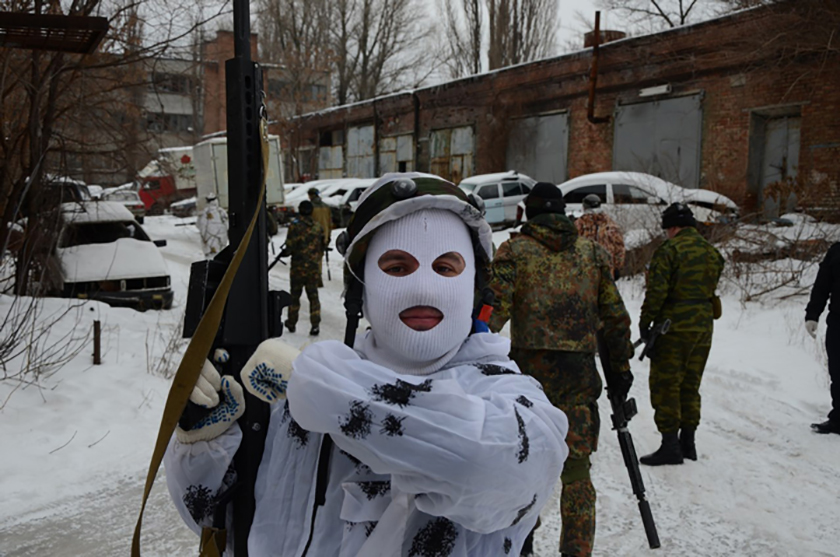
Safety is above all
Finding playgrounds in big cities shouldn’t be a problem, should it? There are plenty of abandoned buildings and idle establishments, aren’t there? Yet good playgrounds re hard to come across. Especially those where players – the majority of which are children – can be safely hosted.
Georgy Masiuk, ‘Zaryad’ club (Rostov-on-Don):
‘Laser tag is generally a safe game. We always ensure that all safety rules are strictly adhered to on the playground, we provide players with detailed instructions, we even warn them: if you go where you warned not to go, you are sure to get a fractured limb. Yet traumas certainly happen. As to our permanent customers, they frequently forget about safety rules (or they pretend to forget). Children are frequently too daring, too. Nevertheless, one is more likely to get traumatized during an indoor laser tag game: cramped space, darkness, one can bump into a rival or have someone shove their blaster in their eye. We always have a first aid kit at hand for such instances and we use it from time to time.’
Anna Sinitsyna, ‘Katyusha’ club (Volgograd):
‘Before we can hold a battle, we need to examine each centimetre of a territory. Laser tag is known by its safety. It is true that weapons do not traumatize, but people can themselves injure each other in the heat of a battle. We have loads of first aid kits and the instructors keep a close eye on all the players, because we hold games on ‘wild’ polygons. We provide a detailed instruction on safety measures, mark hazardous places by bright tape, do our best to remove any iron nails and pieces of broken glass and inspect the area very thoroughly. Yet that is not always sufficient. We did have people seriously injured. Yet no one has ever brought up any claims against us, because the majority of incidences happened out of players’ recklessness or because they wouldn’t follow the instructions given: some climbed onto a roof although they had been instructed not to do that, while others were eager to get inside a pit.’
Denis Kurtasov, ‘Avanpost’ club (Krasnoyarsk):
‘There is an instructor on our playgrounds at all times. He monitors players and gives special attention to children, for they are overconfident and reckless. We have 2 polygons now, both of them are perfectly safe: there is a big indoor polygon at a shopping centre (by the way, having a warm indoor playground is a great way to increase the number of clients by at least two and a half times, especially in the winter) and an outdoor one in a forest area. There are no unwelcome surprises in the forest – no hatches, nor steel frameworks. The worst that can happen is get one’s foot caught in a dead tree branch, but this can happen during a pleasure walk. We used a lift truck to trim the bushes and build a network of roads along which players run. Long time ago, we used to hold games in an abandoned children’s camp and on a paintball polygon. But the camp suited adults more: even though we cleared the territory of any broken glass, iron nails, yet one can’t foresee everything, and kids can be often very uncareful. Therefore, we preferred to send children to the paintball playground – it was safer there.’
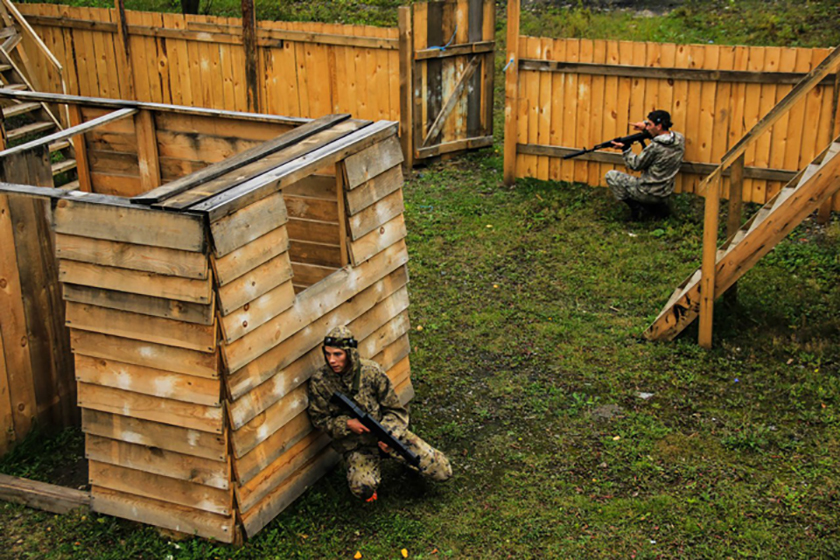
Does everyone need to possess organizing skills?
Organizing own tournaments is yet another stage in the development of the majority of laser tag clubs. First, tournaments are a great way to show yourself to the whole world. Next, it is a priceless, second to none experience for any ambitious laser tag club founder. Third, many want to go through a challenge: ‘If it is so easy for me to organize a game for 20 – 30 people, will I manage if there is going to be three to four times more people?’ But does everyone like to take on this new and certainly difficult matter?
Georgy Masiuk, ‘Zaryad’ club (Rostov-on-Don):
‘We hold tournaments about 4 to 5 times a year. Those are mainly adult players that come to them. We even have 4 regular teams with own equipment: they feel too much at ease (and are frequently forgetting that they are actually guests), and this is quite complicated. Honestly, I do not enjoy organizing too much. It is much easier to hold an open game, without strict limits; it will be visited by those who just want to play and enjoy themselves instead of fighting for the first place.
Organizing tournaments is tough grind. But there is nothing that can be done about that, they need to be held.’
Denis Kurtasov, ‘Avanpost’ club (Krasnoyarsk):
‘We would love to hold tournaments, but there are no one to participate. The nearest big city is fifteen hundred kilometres far from Krasnoyarsk. No tournaments nor meetings are held in our region, for there are no clubs that would have delivered such an outstanding level of organization that teams would be willing to travel this far. Still, this year we will try to organize a meeting. We’ll see what will be out of this.’
Anna Sinitsyna, ‘Katyusha’ club (Volgograd):
‘We were the first to hold the ‘Stalker’ game in the Volgograd region. There is something I can boast about: 80 people came to the first game, 110 to the second and 140 visited the fourth game! This is an outstanding result for a club. What’s more, we have an own tournament: the players will compete for the ‘Katyusha’ cup. It is held four times a year and we are going to have our seventh game this spring. At the beginning, just 3 teams participated in the tournament, this number has now increased to 9! We would enjoy to organize something of a greater scale in our city, but we lack support, including financial support and the idea remains unattainable. But I am sure that one day we will grow up to the level of the ‘May Maneuvers’. It is true that being an organizer is very tough. One can think about all the details, this won’t guarantee, though, that the game will run smoothly. Once we had a tournament, and everything went wrong then. There are still debates rumbling on about it!’
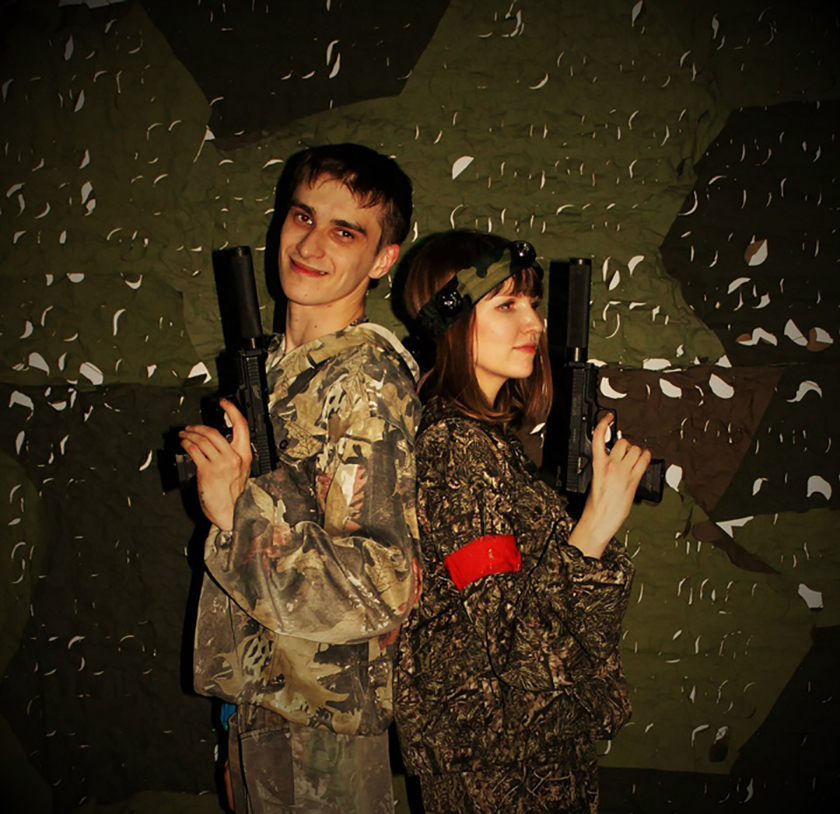
Is there any crisis at all?
Certainly, we couldn’t but ask how the clubs are surviving yet another crisis. It’s hardly a secret that nowadays even a big business is going through not the best of times. Do people continue spending money on entertainment or has the crisis affected laser tag, too? For even paintball – the chief laser tag competitor – is losing ground at an all increasing speed.
Georgy Masiuk, ‘Zaryad’ club (Rostov-on-Don):
‘Has the crisis affected us? Well, it has. To be precise, it’s our clients that got affected by it first: people have now less extra money than they used to have a few years ago. For example, 70 people used to participate in a collective game, now there are only 40. But on the whole, we haven’t lost much. The situation has not reached a critical point. By the way, many claim that paintball is gradually dying out, but I wouldn’t say so. At least, that is not the case for our city. Though, due to the increasing currency rates and, accordingly, increase of prices on parts, the paintball is going through a rough time. Yet I cannot assert that it is about to lose ground. Too much money has been invested in its development, so it won’t give up easily.’
Anna Sinitsyna, ‘Katyusha’ club (Volgograd):
‘As long as I can remember, there has always been a crisis in our country. There is nothing to worry about, everyone has gotten used to it. The real problem is how to find good staff devoted to their work. Finding people that are interested in what they are doing is a hard task. Nevertheless (I am going to boast a little again), we have the most devoted and responsible team in our club!’
Denis Kurtasov, ‘Avanpost’ club (Krasnoyarsk):
‘In spite of the crisis, the demand for laser tag keeps growing. For example, last year we easily joined other clubs when there was a need to hold collective games or borrowed equipment from them when we ran out of own stock. Now everyone got busy, no one is waiting around. No, the crisis has not affected us. But we cannot say the same about paintball. We do not depend on currency fluctuations, while they do. That’s true that the number of players has decreased slightly. But we have made up for the loss by slightly increasing the game fee. The clients have barely noticed this increase. The main difficulty in laser tag is staff. Yet even here we benefit from the crisis, for there are a lot of people looking for a job these days. The jobs we offer are far from poor, I must say: it’s not easy, true, but it is very interesting and most of the time creative.’
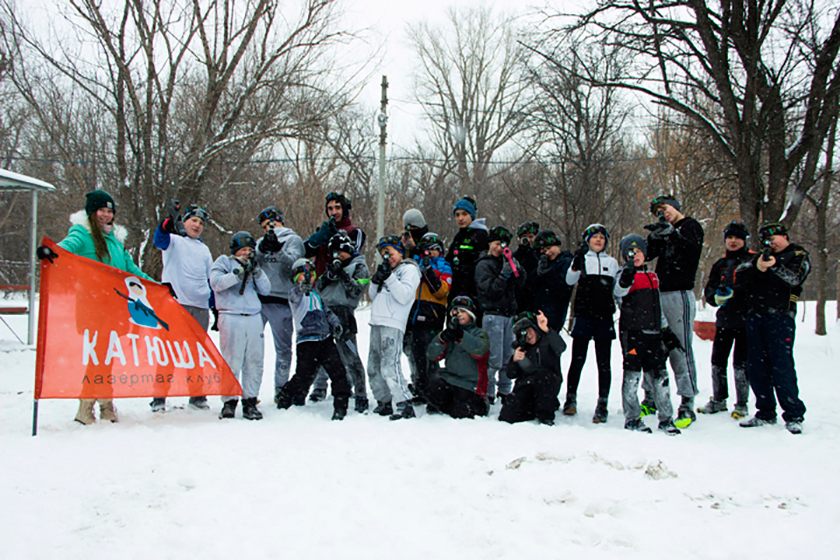
What does laser tag lack?
The clubs have such an optimistic attitude and describe their job with such an inspiration that one may get an impression that laser tag is something awesome and impeccable. But one must realise that there is always going to be a fly in the ointment. Laser tag still remains a new type of business – it is sort of a map with lots of undiscovered, blank spots on it. There are no universal recommendations or rules. No clear instructions on ‘How to create an ideal laser tag business in five months’ or of the kind. It is a good thing that the clubs optimistically look forward for the future. Laser tag is not just business – it is a hobby, a way of life, interaction with the single-minded. Just hoping to earn money will not suffice. Yet loving laser tag alone will not secure success. Rather it is more vital to find the balance: adopt a sensible approach to business development and maintain the enthusiasm.
Denis Kurtasov, ‘Avanpost’ club (Krasnoyarsk):
‘During training courses I learned one simple thing: their aim is not to tell you how everything must work, but to overturn your philosophy of life. A person must get the message. Same can be said about laser tag: the objective of clubs is to turn over the way clients view tactical games on the whole, and laser tag in particular. Certainly, laser tag lacks official recognition. And there are still too many prejudices about it. Yet even many paintball players who initially treated laser tag rather sceptically join our side. There is little space for fresh ideas in paintball. This, in my opinion, is its main weakness. Laser tag technologies are speedily developing and there is no end to it. Laser tag business is not a lottery. Its perspectives can be easily traced. In about 3-years time, laser tag will become just as popular as is paintball; in 5 years, it will outdo it. In my city, paintball is becoming less popular: every year, the number of clients reduces by 10 – 15%. On the contrary, in laser tag this number keeps increasing. I am sure that the life cycle of laser tag is at least 20 years. If you have any doubts out of lack of information as to whether it is worth investing into laser tag, then remember the Chinese stratagem ‘Approaching a deer’: when a hunter doubts whether he will manage to shoot down a deer, he slowly approaches it so as to have a better view of it before he fires his weapon.’
Anna Sinitsyna, ‘Katyusha’ club (Volgograd):
‘Many say that laser tag lacks aggressiveness and painful sensations. But we do not want pain! Laser tag is about strategy and team work. It is about honesty and it rules out the chance that anyone may trick others. It’s not the paintball where a player can lie that he hasn’t been hit by rubbing off the paint off his clothes. Besides, laser tag is more comfortable: there is no need for special clothes or for masks that obstruct vision. Besides, there is a lot more freedom of action here. The fact that laser tag is switching to wireless equipment is a great extra bonus. I can go on laying out the advantages endlessly! I wish laser tag moved up to the next level, I wish it received a recognized sports status. I believe this is what is going to happen. This may not happen this year, nor even next year, but this is sure to happen.’
Georgy Masiuk, ‘Zaryad’ club (Rostov-on-Don):
‘Laser tag is beautiful and self-sufficient. It is true that someone may lack adrenaline or even pain. But it is kids that play this game. Therefore, it’s good that this game is so harmless. Future belongs to laser tag. That is because laser tag is a kind of an interest club. For example, during competitions, many people who used to be strangers become best friends. This is not just a game or a business, it’s a big family. I truly believe this.
At the beginning, such an approach almost seems to contradict the concept of any business. Nevertheless, this is the strong point of laser tag: if one cares not only about takings and income, but also interacts with the colleagues (the majority of which enjoy sharing their experience), keeps in touch with clubs from other cities, shares his success and failure experiences, then one can build a great business that will bring not only profit, but also lots of enjoyment.


